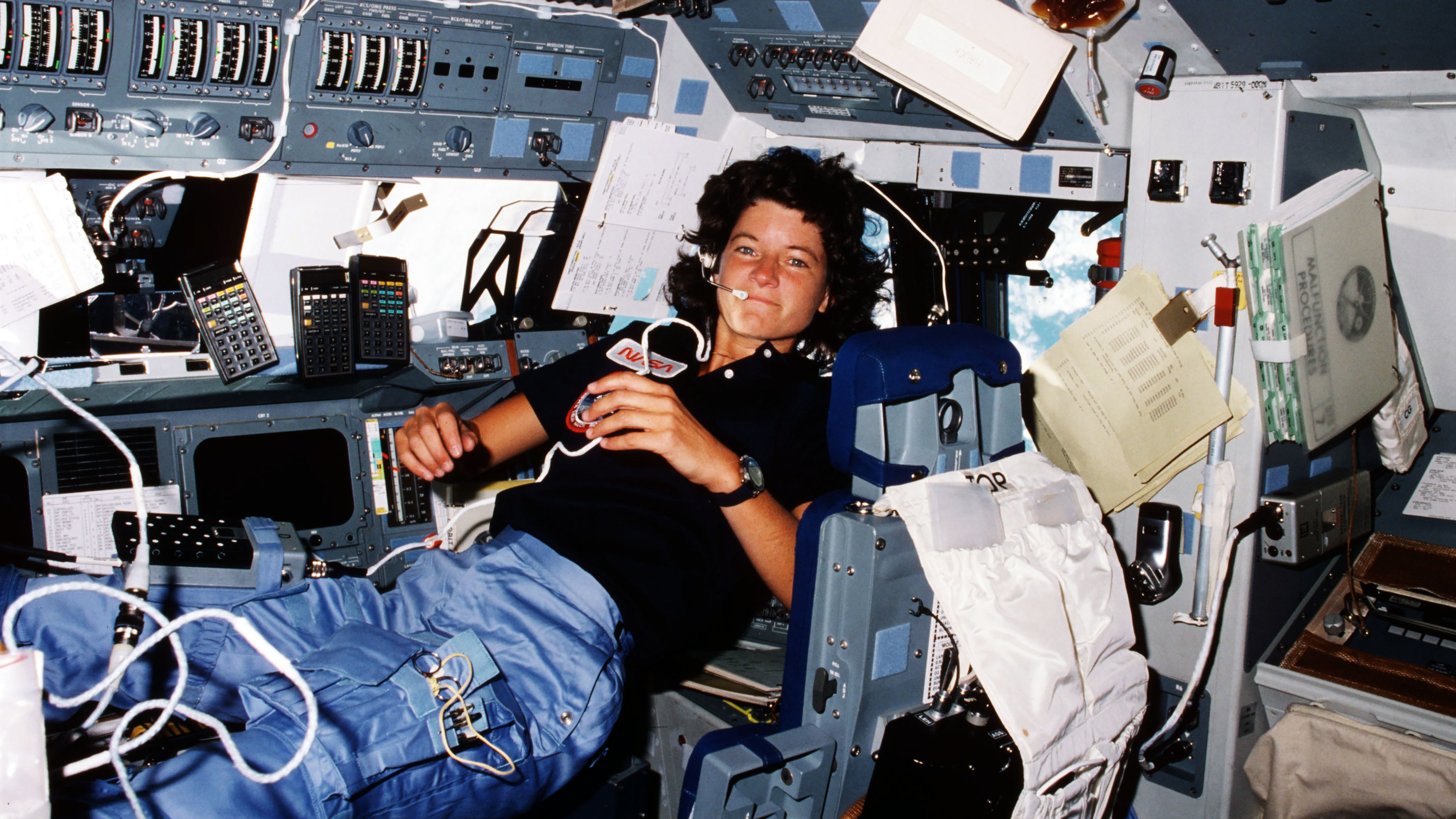Women Are Better Than Men At One More Thing: Space Exploration
Nobody knows why, but women are better at recovering from lengthy space flight than men
Women are better than men at most things, that's just a given, so here's one more thing that we can add to the list: Physically recovering from space travel.
Sally Ride became the first American woman (and third woman in history following Soviet space ladies Valentina Tereshkova and Svetlana Savitskaya) to visit space 41 years ago this month. Since then just over 10 percent of astronauts have been women, though it may soon prove necessary to pump those numbers up a little. A new study published by Nature Communications found that the multitude of stresses posed by long-term space exploration are weathered much more readily by women.
According to the study, which took biological samples from the all-civilian crew of SpaceX's 2021 Inspiration4 mission, males in general "appear to be more affected by spaceflight for almost all cell types and metrics." There isn't a definitive reason as to why this would be the case, but the study's lead author, Christopher Mason, speculates that it stems from the ability to withstand and recover from the stresses of pregnancy. Women are more able to "tolerate large changes in physiology and fluid dynamics," continues Mason.
The goal of this study was to uncover how well an untrained space traveler might weather a lengthy trip off-world to, say, Mars. Over the course of Inspiration4's three days in orbit, the civilian astronauts saw a number of genetic attributes temporarily re-coded to cope with space travel. According to the results of ongoing testing, most of the changes that human bodies undergo in space were un-done after three months. Obviously it isn't yet clear how well human bodies, male or female, would recover from space travel without a recovery period back on earth. Is the atmosphere and gravity of the Moon or Mars enough to help get humans back to their homeostasis?
Mason concluded from the study that "There's no reason we shouldn't be able to safely get to Mars and back." though the research will necessarily be ongoing. "We will need all possible biomedical data to make precision medicine for future crews a reality and to prepare for longer missions to the Moon and Mars."
